Fleurs du Mal Magazine


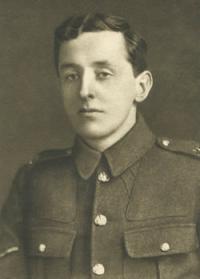
April Evening, 1916
O sweet blue eve that seems so loath to die,
Trailing the sunset glory into night,
Within the soft, cool strangeness of thy light,
My heart doth seem to find its sanctuary.
The day doth verge with all its secret care,
The thrush is lilting vespers on the thorn;
In Nature’s inner heart seems to be born
A sweet serenity; and over there
Within the shadows of the stealing Night,
Beneath the benison of all her stars
Men, stirr’d to passion by relentless Mars,
Laughing at Death, wage an unceasing fight.
The thunder of the guns, the scream of shells
Now seem to rend the placid evening air:
Yet as the night is lit by many a flare
The thrush his love in one wild lyric tells.
O sweet blue eve! Lingering awhile with thee,
Before the earth with thy sweet dews are wet,
My heart all but thy beauty shall forget
And find itself in thy serenity.
John William (Will) Streets
(1886 –1916)
April Evening, 1916
• fleursdumal.nl magazine
More in: - Archive Tombeau de la jeunesse, Archive S-T, Streets, Will, WAR & PEACE
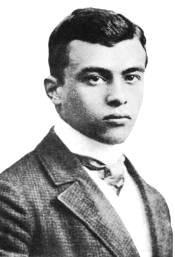
Weltende
Dem Bürger fliegt vom spitzen Kopf der Hut,
In allen Lüften hallt es wie Geschrei,
Dachdecker stürzen ab und gehn entzwei.
Und an den Küsten – liest man – steigt die Flut.
Der Sturm ist da, die wilden Meere hupfen
An Land, um dicke Dämme zu zerdrücken.
Die meisten Menschen haben einen Schnupfen.
Die Eisenbahnen fallen von den Brücken.
Jakob van Hoddis
(1887 – 1942)
Weltende (Gedicht)
• fleursdumal.nl magazine
More in: Archive G-H, Archive G-H, Hoddis, Jakob van
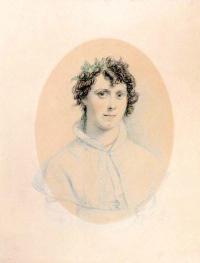
Love
Oh Love! how fondly, tenderly enshrined
In human hearts, how with our being twined!
Immortal principle, in mercy given,
The brightest mirror of the joys of heaven.
Child of Eternity’s unclouded clime,
Too fair for earth, too infinite for time:
A seraph watching o’er Death’s sullen shroud,
A sunbeam streaming through a stormy cloud;
An angel hovering o’er the paths of life,
But sought in vain amidst its cares and strife;
Claimed by the many–known but to the few
Who keep thy great Original in view;
Who, void of passion’s dross, behold in thee
A glorious attribute of Deity!
Susanna Moodie:
Love (Poem)
(1803 – 1885)
• fleursdumal.nl magazine
More in: Archive M-N, Archive M-N, CLASSIC POETRY
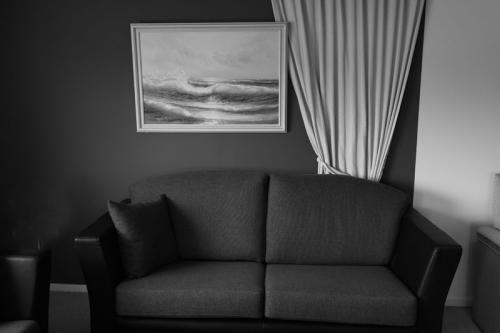
Vloed
Ze kruipt graag voor, de branding. Spoelt zich het kader
uit de blik in, een kamer waarin nog nooit gewoond werd
tegemoet. Door druppels heen voeren winden landzieke
beloftes aan. Zonder wat voor twijfels dan ook zwijgt
schamel het strand van de ontrouw, en bilzacht de bank.
Bert Bevers
Bert Bevers schreef dit gedicht bij de foto van Joep Eijkens
© gedicht Bert Bevers 2020
© foto Joep Eijkens 2020
• fleursdumal.nl magazine
More in: Archive A-B, Archive A-B, Archive E-F, Bevers & Eijkens, Bevers, Bert, Joep Eijkens Photos, Photography

Die Liebe
Wenn ihr Freunde vergeßt, wenn ihr die Euern all,
O ihr Dankbaren, sie, euere Dichter schmäht,
Gott vergeb es, doch ehret
Nur die Seele der Liebenden.
Denn o saget, wo lebt menschliches Leben sonst,
Da die knechtische jetzt alles, die Sorge, zwingt?
Darum wandelt der Gott auch
Sorglos über dem Haupt uns längst.
Doch, wie immer das Jahr kalt und gesanglos ist
Zur beschiedenen Zeit, aber aus weißem Feld
Grüne Halme doch sprossen,
Oft ein einsamer Vogel singt,
Wenn sich mählich der Wald dehnet, der Strom sich regt,
Schon die mildere Luft leise von Mittag weht
Zur erlesenen Stunde,
So ein Zeichen der schönern Zeit,
Die wir glauben, erwächst einziggenügsam noch,
Einzig edel und fromm über dem ehernen,
Wilden Boden die Liebe,
Gottes Tochter, von ihm allein.
Sei gesegnet, o sei, himmlische Pflanze, mir
Mit Gesange gepflegt, wenn des ätherischen
Nektars Kräfte dich nähren,
Und der schöpfrische Strahl dich reift.
Wachs und werde zum Wald! eine beseeltere,
Vollentblühende Welt! Sprache der Liebenden
Sei die Sprache des Landes,
Ihre Seele der Laut des Volks!
Friedrich Hölderlin
(1770 – 1843)
Die Liebe
Gedicht
• fleursdumal.nl magazine
More in: Archive G-H, Archive G-H, Hölderlin, Friedrich

To The Sun
Great Phoebus ! thou on whom we all depend
For countless joys which thou alone canst send,
A saturated mortal to thee speaks,
And for an answer to this question seeks —
Where hast thou been through all these sloppy weeks?
Oh ! by sweet thoughts of punt and shade and pipe.
By horrid dreams of Fruit far, far from ripe,
By hopes of pleasures culled throughout the “Long,”
By thoughts of Margate with its ni^er song.
By trips proposed upon the “Continong”;
Shine forth, O mighty Sun ! and turn thy face
On match, regatta, party, pic-nic, race;
Dispel the gloom that o’er our island lowers,
And people all the land with countless flowers,
And let us have at least some rainless hours.
Let Bobbies murmur in the Street of Bow,
And swear that on their beat they will not go:
Let Postmen fill our souls with endless fears
That correspondence may get in arrears :
Let thoughts of striking fill our Grenadiers :
Let all these cease from labour, if they like ;
But thou, great Sun-god, go not thou on strike!
Montague Horatio Mostyn Turtle Pigott
(1865–1927)
To The Sun (Poem)
•fleursdumal.nl magazine
More in: Archive O-P, Archive O-P, Mostyn Turtle Pigott
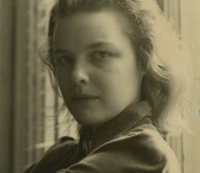
Vermont and the Hills and the Valleys
1
Tremendous are the ways of the simple people,
The hills speak with their mouths,
The sky laughs out the rims of their eyes,
The earth walks with the feet of the people
And the wind and the dead are their souls awake
And the sleep, that is theirs comes when the eye-lid
Slips down to meet the soiled slant of their cheeks.
2
Great are the mountain slopes curving along the line
Flanked by the river or the smooth-glint track of train:
A speed of smoke, a sprung-coil loosely heaped beyond the span of steel.
Look to right — look to the left and the fields
That fit in languid patterns between trees,
Umber cornstalks, hay in warm-split stacks!
3
Tight is the hair of women who call cows to the milking,
Wrists and fingers playing out the movement of the udder-press.
White is the angle and the piss and splash of milk.
Let it be remembered, O, let it be remembered
That there are the women and the simple people!
4
The oxen plow and wagon the hay in its high dung-gold,
Making long horns shape and hold the moon,
The red of their sides squat.
The green of the trees spring in wide green waves to the wind,
To the fields and the wide-palmed spread of space.
5
The men are before the night:
With the cracks of their cheeks filled with dust,
And the hands heavy like listless takes swung down,
And the dirt and sweat on their lips,
And the rise and fall of their chests.
6
The women go from the milking to the pot without compunction.
Steps of men and women from the field to the home,
From the plow to the reaping in the deep high swell of wheat.
There are the simple people
Whose hands rest still on a Sabbath,
And great are the fields and the mountains,
And great are the slopes and the valleys.
Joan Murray
(1917-1942)
Vermont and the Hills and the Valleys
(poem)
• fleursdumal.nl magazine
More in: Archive M-N, Archive M-N, Joan Murray
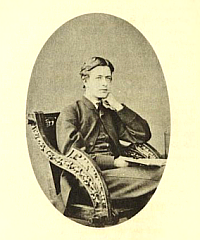
From Sappho
Thou liest dead, lie on: of thee
No sweet remembrances shall be,
Who never plucked Pierian rose,
Who never chanced on Anteros.
Unknown, unnoticed, there below
Through Aides’ houses shalt thou go
Alone, for never a flitting ghost
Shall find in thee a lover lost.
Digby Mackworth Dolben
(1848 – 1867)
From Sappho
• fleursdumal.nl magazine
More in: Archive C-D, Archive C-D, Digby Mackworth Dolben, Sappho
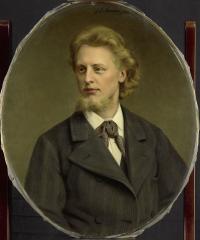
Iris
Der eerwaarde jonkvrouwe Joanna C. B.
`Ik ben geboren uit zonnegloren
En een zucht van de ziedende zee,
Die omhoog is gestegen, op wieken van regen,
Gezwollen van wanhoop en wee.
Mijn gewaad is doorweven met parels, die beven
Als dauw aan de roos, die ontlook,
Wen de Dagbruid zich baadt en voor ‘t schuchter gelaat
Een waaier van vlammen ontplook. –
Met tranen in ‘t oog, uit de diepte omhoog,
Buig ik ten kus naar beneden:
Mijn lichtende haren befloersen de baren
En mijn tranen lachen tevreden:
Want diep in zee splijt de bedding in twee,
Als mijn kus de golven doet gloren…
En de aarde is gekloofd en het lokkige hoofd
Van Zefier doemt lachend naar voren.
Hij lacht… en zijn zucht blaast, mij arme, in de lucht
En een boog van tintlende kleuren
Is mijn spoor, als ik wijk naar het dromerig rijk,
Waar ik eenzaam om Zefier kan treuren.
Hij mint me als ik hém… maar zijn lach, zijn stem,
Zijn kus… is een zucht: wij zwerven
Omhoog, omlaag; wij wíllen gestaâg,
Maar wij kunnen nòch kussen, nòch sterven. –
De sterveling ziet mijn aanschijn niet,
Als ik uitschrei, hoog boven de wolken,
En de regenvlagen met ritselend klagen
Mijn onsterflijken weedom vertolken.
Dan drenkt mijn smart het dorstende hart
Van de bloem, die smacht naar mijn leed
En met dankenden blik naar mij opziet, als ik
Van weedom het wenen vergeet.
En dán verschijn ik door het ‘t nevelgordijn –
Dat mijn Zefier verscheurt, als hij vliegt –
Somber gekromd… tot de zonneschijn komt
En ‘t rag mijner wieken zich wiegt.
Dán zegt op aarde, wie mij ontwaarde:
“De goudene Iris lacht!”…
En stil oversprei ik vale vallei
Met een gloed van zonnig smaragd. –
Mijn handen rusten op de uiterste kusten
Der aarde als, in roerloos peinzen, –
Eén bonte gedachte – ik mijn liefde verwachtte…
Die mij achter de zon zal doen deinzen. –
‘k Zie ‘s nachts door mijn armen de sterren zwermen
En het donzige wolkengewemel
En de maan, die mij haat en zich koestert en baadt
In de zilveren lach van den hemel. –
Mijn pauwepronk… is de dos, dien mij schonk
De zon, om de stervling te sparen,
Wien mijn lichtloze blik zou bleeken van schrik
En mijn droeve gestalte vervaren.
Nu omspan ik den trans met mijne armen van glans
Tot mij lokt Zefier’s wapprend gewaad,
En ik henenduister naar ‘t oord, waar de luister
Der lonkende zon mij verlaat. –
Ik ben geboren uit zonnegloren
En een vochtige zucht van de zee,
Die omhoog is gestegen, op wieken van regen,
Gezwollen van ‘t wereldse wee. –
Mij is gemeenzaam, wie even eenzaam
Het leven verlangende slijt
En die in tranen zijn Vreugde zag tanen…
Doch liefelijk lacht, als hij lijdt!’ –
Jacques Perk
(1859 – 1881)
Iris
(Gedichten, 1882)
• fleursdumal.nl magazine
More in: Archive O-P, CLASSIC POETRY, Jacques Perk
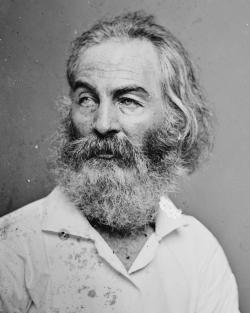
The wound-dresser
1
An old man bending I come among new faces,
Years looking backward resuming in answer to children,
Come tell us old man, as from young men and maidens that love me,
(Arous’d and angry, I’d thought to beat the alarum, and urge relentless war,
But soon my fingers fail’d me, my face droop’d and I resign’d myself,
To sit by the wounded and soothe them, or silently watch the dead;)
Years hence of these scenes, of these furious passions, these chances,
Of unsurpass’d heroes, (was one side so brave? the other was equally brave;)
Now be witness again, paint the mightiest armies of earth,
Of those armies so rapid so wondrous what saw you to tell us?
What stays with you latest and deepest? of curious panics,
Of hard-fought engagements or sieges tremendous what deepest remains?
2
O maidens and young men I love and that love me,
What you ask of my days those the strangest and sudden your talking recalls,
Soldier alert I arrive after a long march cover’d with sweat and dust,
In the nick of time I come, plunge in the fight, loudly shout in the rush of successful charge,
Enter the captur’d works–yet lo, like a swift-running river they fade,
Pass and are gone they fade–I dwell not on soldiers’ perils or soldiers’ joys,
(Both I remember well-many the hardships, few the joys, yet I was content.)
But in silence, in dreams’ projections,
While the world of gain and appearance and mirth goes on,
So soon what is over forgotten, and waves wash the imprints off the sand,
With hinged knees returning I enter the doors, (while for you up there,
Whoever you are, follow without noise and be of strong heart.)
Bearing the bandages, water and sponge,
Straight and swift to my wounded I go,
Where they lie on the ground after the battle brought in,
Where their priceless blood reddens the grass the ground,
Or to the rows of the hospital tent, or under the roof’d hospital,
To the long rows of cots up and down each side I return,
To each and all one after another I drawn near, not one do I miss,
An attendant follows holding a tray, he carries a refuse pail,
Soon to be fill’d with clotted rags and blood, emptied, and fill’d again.
I onward go, I stop,
With hinged knees and steady hand to dress wounds,
I am firm with each, the pangs are sharp yet unavoidable,
One turns to me his appealing eyes-poor boy! I never knew you,
Yet I think I could not refuse this moment to die for you, if that would save you.
3
On, on I go, (open doors of time! open hospital doors!)
The crush’d head I dress, (poor crazed hand tear not the bandage away,)
The neck of the cavalry-man with the bullet through and through I examine,
Hard the breathing rattles, quite glazed already the eye, yet life struggles hard,
(Come sweet death! be persuaded O beautiful death!
In mercy come quickly.)
From the stump of the arm, the amputated hand,
I undo the clotted lint, remove the slough, wash off the matter and blood,
Back on his pillow the soldier bends with curv’d neck and side-falling head,
His eyes are closed, his face is pale, he dares not look on the bloody stump,
And has not yet look’d on it.
I dress a wound in the side, deep, deep,
But a day or two more, for see the frame all wasted and sinking,
And the yellow-blue countenance see.
I dress the perforated shoulder, the foot with the bullet-wound,
Cleanse the one with a gnawing and putrid gangrene, so sickening, so offensive,
While the attendant stands behind aside me holding the tray and pail.
I am faithful, I do not give out,
The fractur’d thigh, the knee, the wound in the abdomen,
These and more I dress with impassive hand, (yet deep in my breast a fire, a burning flame.)
4
Thus in silence in dreams’ projections,
Returning, resuming, I thread my way through the hospitals,
The hurt and wounded I pacify with soothing hand,
I sit by the restless all the dark night, some are so young,
Some suffer so much, I recall the experience sweet and sad,
(Many a soldier’s loving arms about this neck have cross’d and rested,
Many a soldier’s kiss dwells on these bearded lips.)
Walt Whitman
(1819 – 1892)
The wound-dresser
From: Leaves of grass
• fleursdumal.nl magazine
More in: Archive W-X, Archive W-X, Whitman, Walt
Thank you for reading Fleurs du Mal - magazine for art & literature